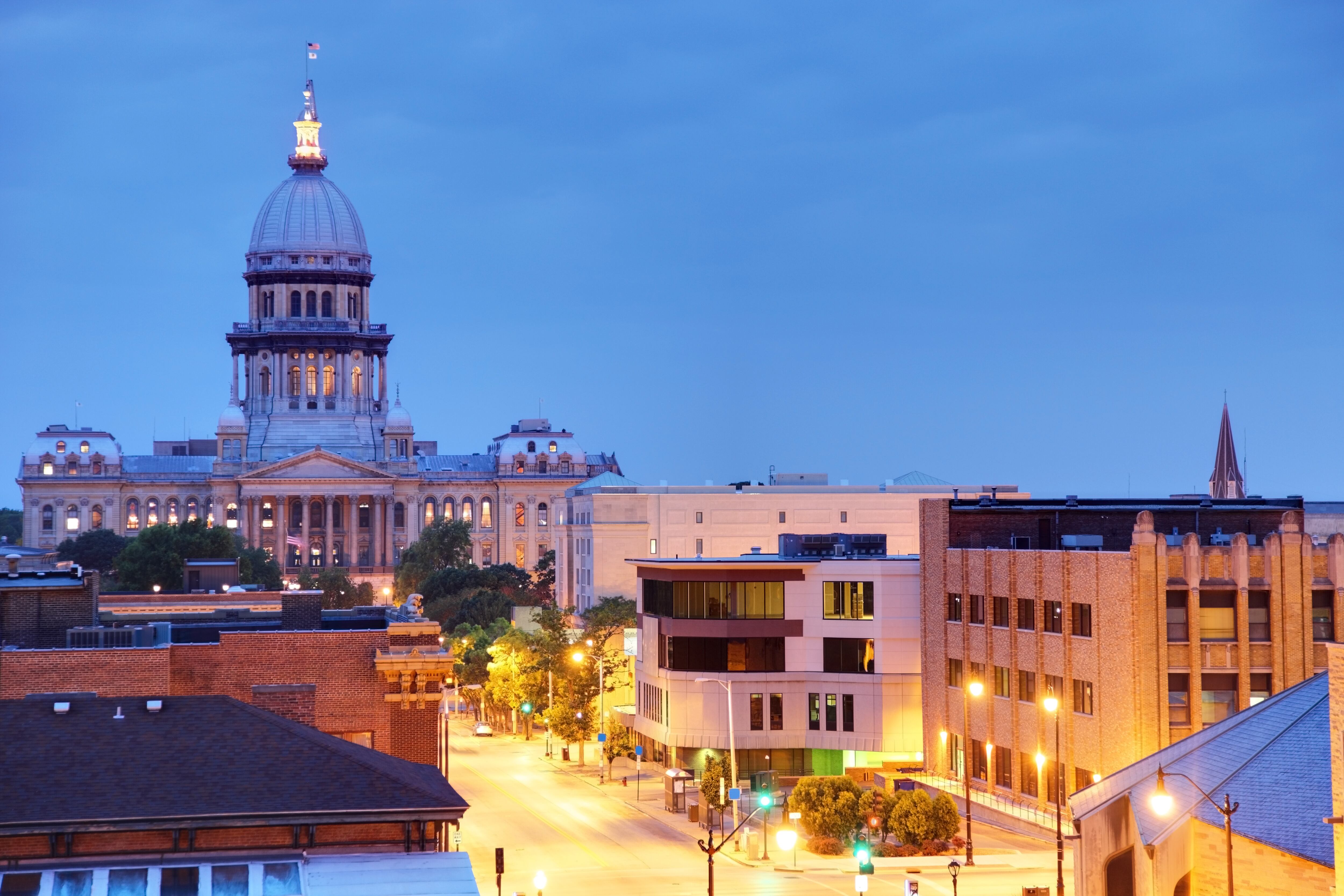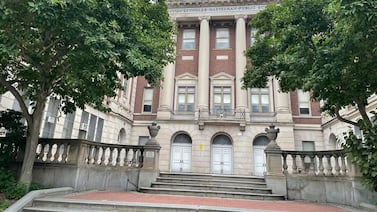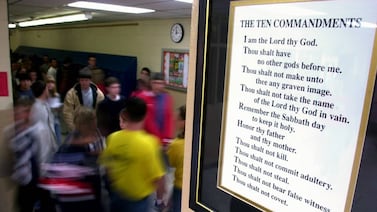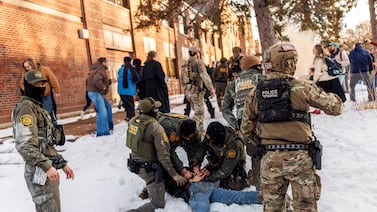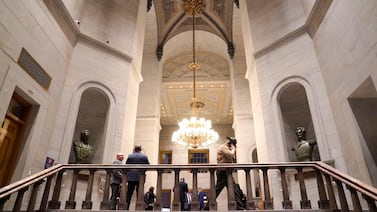Sign up for Chalkbeat Chicago’s free daily newsletter to keep up with the latest education news.
A state bill that would prevent changes to Chicago’s selective enrollment schools and block the district from closing schools until 2027 appears to have stalled in the final scheduled hours of the legislative session.
The lack of movement comes after Mayor Brandon Johnson sent a letter to Illinois Senate President Don Harmon asking him not to call the bill for a final vote, arguing it “seeks to solve problems that do not exist.”
The situation is a win so far for Johnson, whose appointed Board of Education is mulling changes to the district’s school choice system and recently rolled out a new budget formula.
State Rep. Margaret Croke, a Democrat representing Chicago’s north side neighborhoods, filed the bill earlier this year that would prevent the board from making changes to admission requirements or cutting funding for selective enrollment schools until a fully elected school board is in place in 2027. She later added an amendment that would extend the moratorium on school closures and prevent any school from shuttering until 2027.
Croke said in a written statement that she is “deeply disappointed” to learn that Harmon may not call her proposal to the floor for final approval. She believes that without the bill magnet schools and charter schools will not be protected and the school board will make changes to admissions for selective schools.
“The CPS school budgeting process has been hidden from both the public and from Springfield legislators, and I fully expect that disproportionate cuts will be made to magnet schools and charters will eventually be closed,” said Croke’s statement.
The bill unanimously passed the House and passed quickly out of a Senate committee. If the full Senate votes, it would go to Gov. J.B. Pritzker’s desk. On Thursday, Harmon declined to bring the bill to the floor for debate.
“The District will not close selective enrollment schools nor will the District make disproportionate budget cuts to selective enrollment schools,” Johnson wrote in the letter.
Johnson also wrote that the board will not eliminate testing or other requirements for enrollment into selective enrollment schools or programs.
Harmon has yet to provide comment on whether he will hold the bill or put it on the floor for debate.
The board’s December resolution called on the district to move away from school choice and support neighborhood schools. The goal of both the mayor and the board is to bolster neighborhood schools, many of which have seen declining enrollment in recent years, and to make selective schools – several of which are segregated by income or race – more diverse.
The board’s resolution called for transitioning “away from privatization and admissions/enrollment policies and approaches that further stratification and inequity in CPS and drive student enrollment away from neighborhood schools.”
The board said it will rely on public feedback to inform how it will revamp school choice and include those details as part of the district’s five-year strategic plan, expected to be finalized this summer.
The state bill would also prevent funding cuts to Chicago’s selective enrollment schools, some of which have already seen a decrease in funding to staffing. Some Local School Council members have said network leaders have suggested that their schools could fundraise to fill in the gaps, which could exacerbate inequalities.
Johnson and the board have said that if Croke’s bill passes, it would prevent the district from balancing its budget. The district is distributing the same amount of money to schools as it did last year, officials say.
The new budgeting formula aims to distribute resources more equitably and based on need. Some campuses, including those in higher-income areas, are reporting cuts while others in less affluent neighborhoods are seeing some boosts.
Chicago Public Schools have yet to make school-level budgets available to the public, but some Local School Councils have been vocal about cuts to their current budgets.
Samantha Smylie is the state education reporter for Chalkbeat Chicago covering school districts across the state, legislation, special education and the state board of education. Contact Samantha at ssmylie@chalkbeat.org.
Reema Amin is a reporter covering Chicago Public Schools. Contact Reema at ramin@chalkbeat.org.

